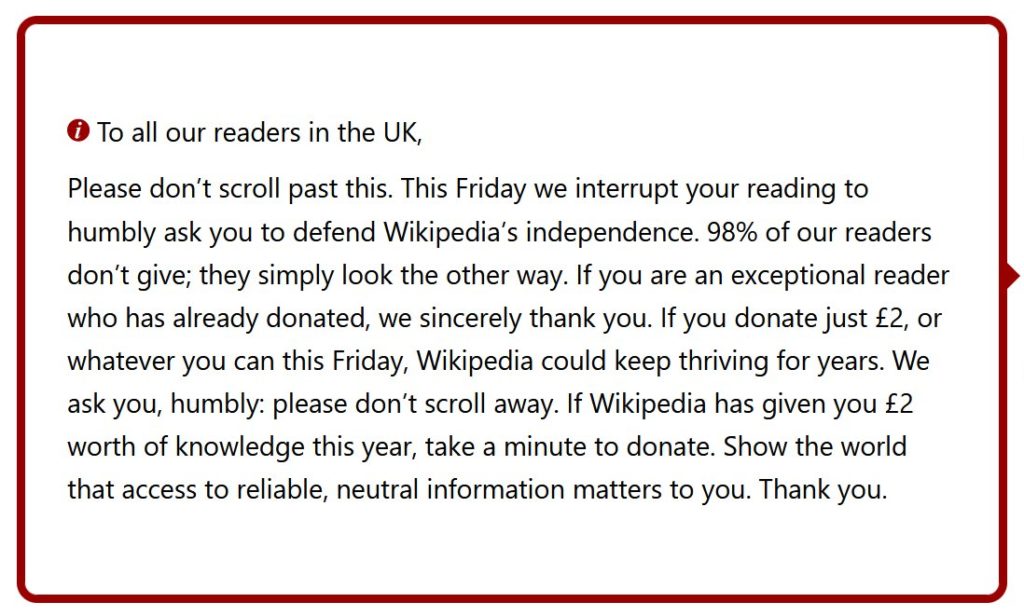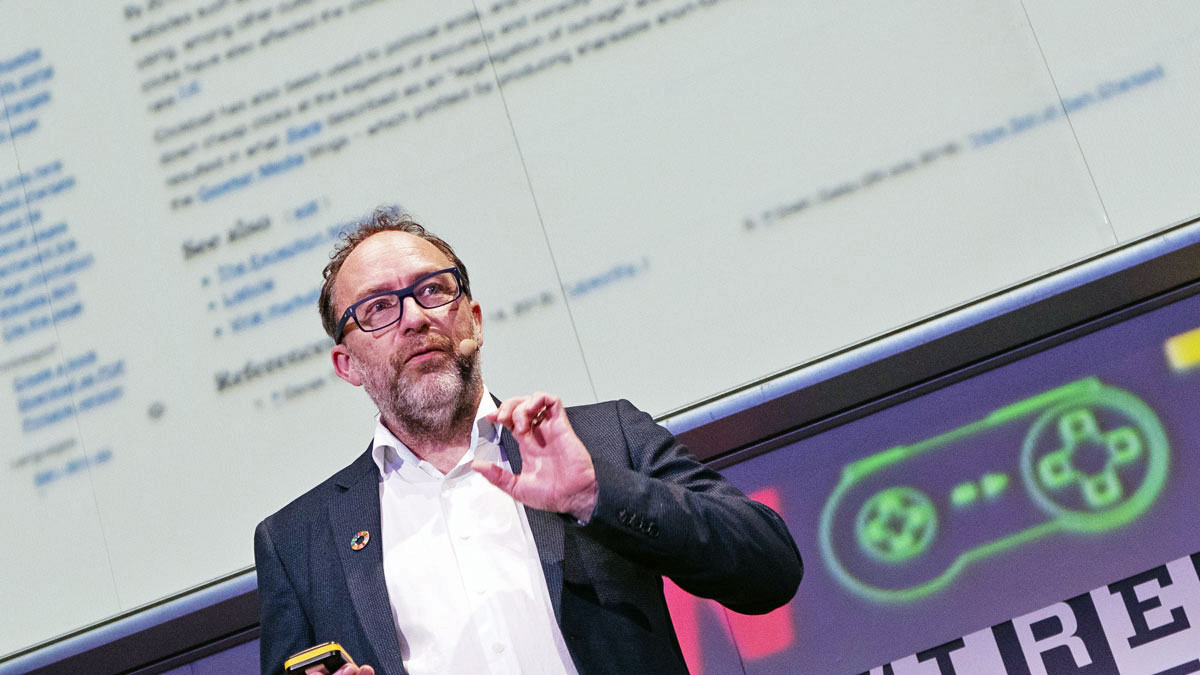No one wants to be a bad person, and you probably felt pretty bad when you saw the heart-breaking appeal and just carried on clicking. Wikipedia is midway through a six-week fund-raising drive in Anglophone regions including the United States, the UK, New Zealand and Australia. The banner ads beg for “just £2”, which doesn’t sound like much, for all that free information. But before you start feeling too guilty, it’s worth considering some facts.
These banner ads have become very lucrative for the NGO that collects the money — the Wikimedia Foundation, a non-profit based in San Francisco. Every year the NGO responsible for the fundraising adds tens of millions of dollars to its war chest. After a decade of professional fund-raising, it has now amassed $400 million of cash as of March. It created an endowment, managed by the Tides Foundation, which now holds well over $100 million of that. The Foundation wanted to hit that figure in ten years, but found it had sailed past it in just five. In 2021, the appeals raised a total of $162 million, a 50% year-on-year increase. Yet the running costs of Wikipedia are a tiny fraction of the amount raised each year.

Indeed, in the 2012/13 year the Foundation budgeted for $1.9m to provide all its free information on tap.
“WMF has operated in the past without staffing and with very minimal staffing, so clearly it’s _possible_ to host a high traffic website on an absolute shoestring,” acknowledged the Foundation’s then VP of engineering, Erik Möller, in 2013. He put the running costs at $10 million a year. Being generous, as some costs fall every year, let’s double that. Wikipedia can operate quite comfortably with the cash it has already, without running another banner ad, for twenty years. So where does the money go?
Not on the people doing the actual work on the site, of course. Wikipedia’s Administrators and maintainers, who tweak the entries and correct the perpetual vandalism, don’t get paid a penny — they’re all volunteers. What has happened is that the formerly ramshackle Foundation, which not so long ago consisted of fewer than a dozen staff run out of a back room, has professionalised itself. It has followed the now well-trodden NGO path to respectability and riches. The Foundation lists 550 employees. Top tier managers earn between $300,000 and $400,000 a year, and dozens are employed exclusively on fund-raising.
The NGO world of which the Wikimedia Foundation is now part uncannily follows Marx’s prediction that the middle class would devise an infinite number of ways of enriching themselves, while ensuring the proletariat, the volunteers at the Wiki-face, don’t share the riches. Understandably, the relationship between the unruly Wikipedia workers and their bourgeoisie betters at the Foundation is strained. When the Wikimedia Foundation proposed changing its name to the Wikipedia Foundation, many of them decided it was a slur and the attempt faltered. For the first time this year, dissent is evident: many recently condemned the Foundation for continuing to run misleading and aggressive appeals.
Without many people realising, Wikipedia has become the world’s most aggressive online chugger. It’s okay to say no.











Join the discussion
Join like minded readers that support our journalism by becoming a paid subscriber
To join the discussion in the comments, become a paid subscriber.
Join like minded readers that support our journalism, read unlimited articles and enjoy other subscriber-only benefits.
Subscribe